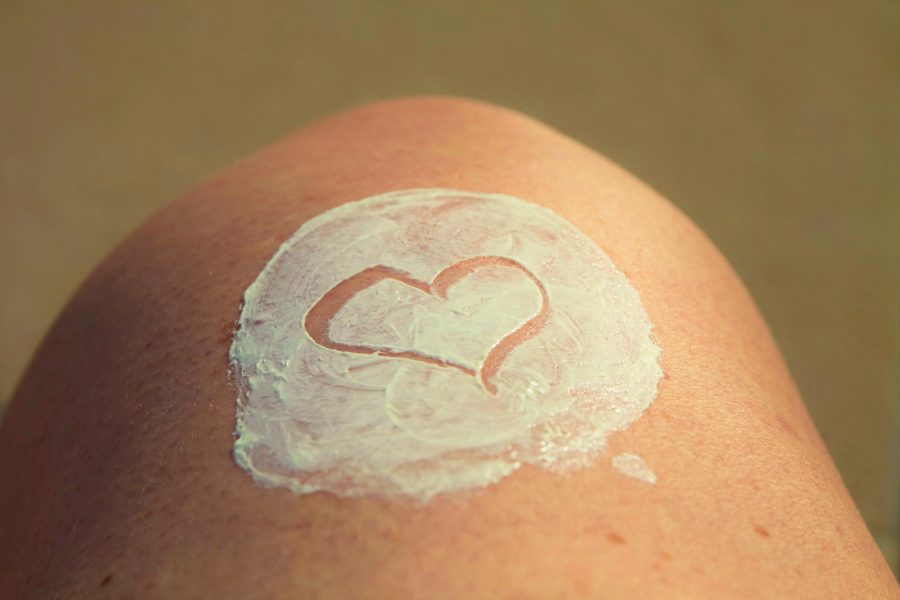Dear July, your heightened heat indexes and increased exposure to the sun has pushed my level of desire to stay inside and watch Netflix all day through the roof, and this is wreaking havoc on my skin. Quit it. – Sincerely, Me
If you could write a letter to the month of July, would it sound a bit like that? Chances are yes because as students lose the structure of classes during the summer, they slacken the reins on their skincare, which can lead to mild acne breakouts at the best, and terrible, hospital-level sunburns at the worst. This quick guide to protecting your skin—and your peace of mind—from summer’s worst efforts should at least get your skin health back on the right track.
First and most importantly, there would be no skin to treat or pamper if the sun’s harmful UV rays burned it to a crisp. No matter how cloudy it is outside, or how little time you think you will spend outdoors, put on sunscreen. Make sure every bit of exposed skin, especially your face, has been treated with sunblock. These days, there are two different kinds of sunblock available: the physical sunblocks, which are made of zinc oxide, and the chemical sunblocks, which contain ingredients like benzophenone. The primary difference between these two types of sunblock is how they protect your skin; physical sunblocks act as a barrier by reflecting the sun’s UVA and UVB rays, while chemical sunblocks absorb the rays. Broad-spectrum sunblocks contain both physical and chemical sunblock ingredients and are therefore more widely recommended, but check with your doctor to make sure you are not allergic to any of the ingredients in the sunblock you decide to use or check with other outside resources.
The key to clear, hydrated skin is to keep it clean. Acne breakouts happen more during the summer because it is more difficult to stay fresh when you are sweating through 90o weather. Blot sweat off your skin with a clean towel and make sure that anything that touches your skin is fresh and sweat-free—that includes clothes, bath towels, bedsheets, and pillowcases. Wash your sheets and towels at least once a week to get rid of pimple-causing sweat and oil buildups in the fabric. Your skin can also become dry and irritated if you do not wash it immediately after getting out of a body of water, especially if it is sensitive. The chlorine in pools strips your skin of its natural protective oils and can leave it feeling itchy and unpleasant, so hop in the showers with some mild soap and scrub yourself down before enduring the long, air-conditioned car ride home. If your family keeps the house cold and dry, your skin might not be fond of that either. Always remember to moisturize using a fragrance-free moisturizer after showers and whenever your skin feels dry and itchy.
Whether you spend your summer days cooped up in your room or out and about, chances are, you are not getting enough water. Another important aspect of skin care is to keep it hydrated. Water is a natural clarifier: it nourishes your body and collects dirt and excess particles, including the bits hiding under your dermis, and transports them out of your system. As for the old saying that you should be drinking eight glasses of water a day, many dispute this, with the argument being that other factors need to be taken into consideration, such as your height, weight, age, and level of physical activity. Your best bet is to keep a container of water by your side and drink from it continuously throughout the day to keep your system working properly and your skin happy and hydrated.
Sunscreen, cleanliness, and hydration aside, your skin needs one more vital substance to stay healthy: vitamins. Based on your diet, it may not be receiving the vitamins it needs to look and feel its best. Keep your skin nourished by making sure you consume well-rounded meals with foods rich in vitamins A, B, C, E, and K, among other important minerals. If you simply cannot do that, vitamin supplements—whether geared specifically for hair, skin, and nails or just to maintain healthy levels overall—make a pale but acceptable substitute.
Finally, the most important thing to remember overall is that your skin is your body’s barrier against the outside world. To protect it, you need to treat it well from the inside out. Skincare is an aspect of life that affects us all, and in the brutal summer months when it is susceptible to all sorts of damage, we all should be armed with enough knowledge to keep our skin healthy and happy.







